#1971: the year that music changed everything
Text
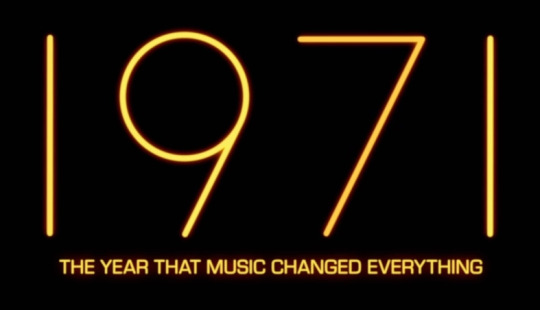
The edifying eight-part docuseries channels admirations into a more studied form of cultural anthropology. The directors reinforced that immersive effect by drawing not just on the year’s musical goings-on, but significant happenings from the world at large in conversation with the era’s pop culture.
"The songs, the records, they were the social media of the time. Writing them and playing them was how you expressed yourself to the world. It didn’t happen over Instagram with a photo of you in Dubai. You did it by creating a work of art that came from the heart."
1 note
·
View note
Text
Calling all Oncelings! I need your help!
Greetings, Onceler fandom! Tis I, MJ, just a little guy who wants your help on a big project I'm planning!
Here's the rundown: I want to do a deep-dive video on the Lorax, from its origins to its adaptations, to the cultural phenomenon that it has become, including a HUGE dedicated section to the fandom and its history! And I need your help with it! Keep reading if this interests you :D
Rough outline of topics that I'm plannning on addressing:
THE CONTENT:
The Original 1971 Book
The 1972 Short
The 2012 Illumination Movie (And what went WRONG, the cut content, analysis)
The 2015 Musical
THE IMPACT:
The Onceler Fandom's Beginnings and Early Years (2012)
Shipping (Oncest, Normaler, the like)
Onceler OCs and aus! (Possibly an OC feature from those in the fandom!)
The Lorax in Meme Culture
The Resurgances of the Fandom (2015, 2021, 2023 Tiktok Boom)
Where's the fandom at now?
It's a huge project and that's why I want you all to help me with it! What do I want your help with? At the moment this is my list!
Research and Fact Checking on the "Content" Section, especially on lesser known topics like the musical or the cut content! (Pspspsps calling the five of you who actually know what the musical is)
RESEARCH AND FIRSTHAND EXPERIENCES OF THE ONCELER FANDOM'S EARLY DAYS!! I joined this place in 2023 so I don't know much about the early days of the fandom, and I want to know SO much more than I do! I want to know the scope, everything from the in-jokes to the aus to the deoncelerization. If you've been in this fandom since 2012 I would LOVE to hear from you!
Last but not least, I want the end of this video to be a love letter to this community, sharing firsthand experiences of what the Onceler as a character and the fandom means to you! I want to conduct interviews with people over discord (which is going to be a lot less fancy than it sounds so dw, it's not going to be an interrogation LMAO)
Specifics are subject to change but one thing will stay, I want to end the video to be made out of raw Love and Appreciation for this fandom, showcasing the side of this little corner of the internet that people who brush it off as mindless cringe don't see. All I've seen from this community is love and support and I want to be the video essayist who shows it for what it is!
At the moment I don't really have much of a plan (I'm not a very good planner lol), but if enough interets garners I know it'll help me streamline my motivation and come up with a game plan!
Feel free to leave me suggestions for where to go from here, maybe give out my discord? Make a Discord Server? Maybe there's something I can do solely on tumblr? I don't know! I don't know at all how Tumblr works! Help Me! Am just a little guy!
Alright that's all from me for now gamers, if this project interests you all in any capacity or you want to help out, please reblog/reply/message/ask/howeveranythingworksonthissite to let me know! Feel free to ask me questions or whatever as well! Peace out for now ✌️
#the lorax#the lorax fandom#lorax fandom#onceler#the onceler#the onceler fandom#onceler fandom#the lorax 2012#lorax musical#idk what else to tag uhhhh#poking you all with a stick worked last time to summon u#Pokes Harder
124 notes
·
View notes
Note
Wanted to know your thoughts on this, but for what I've reading on John it really looks to me he really got worse post Paul and post Beatles, like his saddest songs match the moment he started to have issues with Paul, he wasn't really having much contact with anyone outside Yoko, he wasn't doing much music, he wasn't being that funny either, he even died without being able to fully overcome his heroine addiction (addiction that started in the Beatles fall out right?), and idk i believe his involvement in the whole peace/art movement looked more like an escape (like some people do with religion) than actual interest.
So what you think, was John at his worst after he got out the band and cut his relationship with Paul or was it was always like that?
Hello @lord-pain
thank you for this ask! I hope I'll make sense. I think the White Album was definitely the start of John's "sad songs". Happiness is a Warm Gun, Yer Blues. Subsequently, Dig a Pony sounded so desperate to me and Because which is yeah, post India, post breakup?
There's so many different accounts during that period. Some narrators might be unreliable because you never know who these "historians/journalist/"acquaintances" have their allegiance to.
During the 70s it was said that John was miserable, became a violent drunk (who believed in astrology). He was quite unhappy with how things turned out in his life due to his choices but he was too proud to admit it.
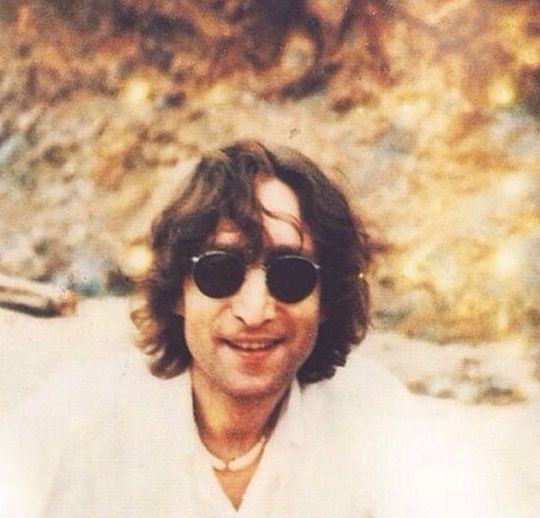
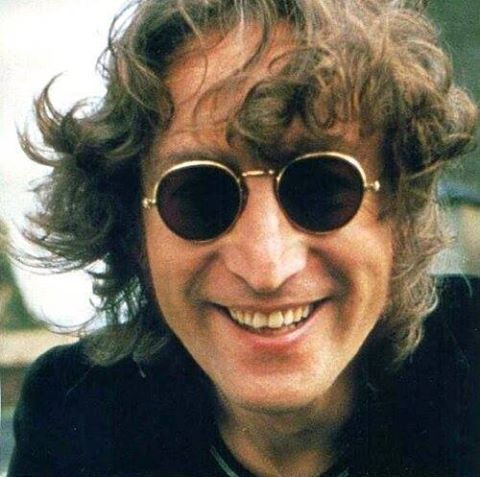
About drugs, Fred Seaman said John stopped with heroin in the last half of the 70s in this video.
Due to differing accounts that are out there, I just concentrate on John, what he wrote lyrically and how clearheaded he was during his last interview. He was trying to be better. I think that is the most important detail despite everything that went down. Also the part where he was going to work with Ringo and had booked a studio with Paul for January 1981.
His activism was partly a distraction for him. Beatle John dabbled in it, but he became very aggressive about politics after the break up. He was anti-religion when he released Imagine (1971). But went back to believing in god when he wrote "Grow Old With Me" (1979?), which I have so much thoughts about but I haven't even had the courage to voice out.
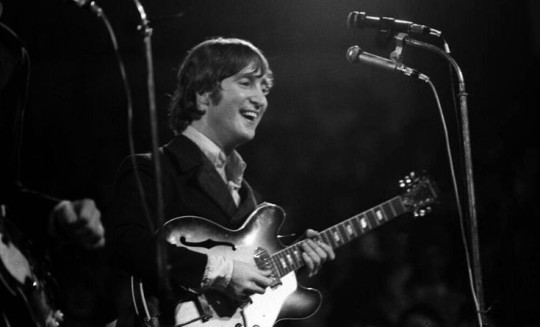
While there are glimpses of John's mental anxiety visible in his song "Help!" (1965)
"Help me if you can, I'm feeling down, and I do appreciate you being 'round",
he was trying to be positive about it as seen in "Strawberry Fields Forever" (1966):
"It's getting hard to be someone but it all works out, It doesn't matter much to me".
And was still holding on during the conception of "Across the Universe" (in February 1968) with his mantra:
"Nothing's gonna change my world",
which I think might've been a result of Paul's engagement in December 1967 to Jane.
Across the Universe (February 1968) > believer
God (1970) > anti-religion
Imagine (1971) > anti-religion (he made a satire song which I did not include here)
Grow Old With Me (1979) > believer
During his alleged break from music from 1975, he was still making home demos and was writing Skywriting by Word of Mouth.
I think John and Paul being apart was just not good for them. The general opinion was that Paul left John and had moved on. (I don't believe that's true). It was John who made the decision to leave, it was this push and pull thing, and Paul continued to reach out to him (and we don't know what happened during all those times they've met up). Some accounts say that John was practically begging for a reunion but then again Paul never stopped reaching out to John (see 1976) so I personally think, regardless of all these details that are out in the open, there is still a missing piece we have not considered yet and that can only be told by Paul himself.
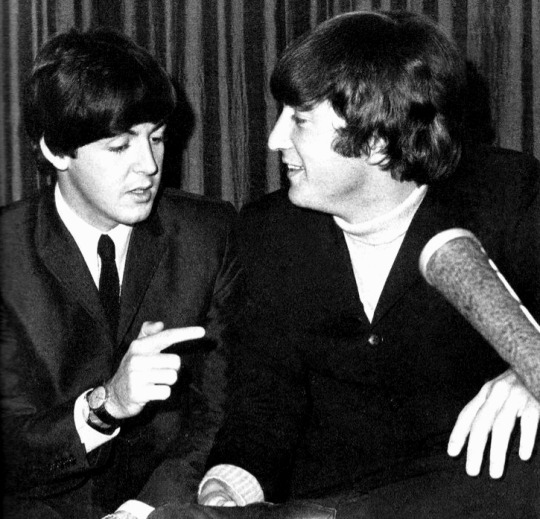
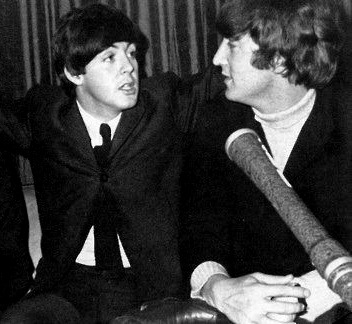
To summarize it, John probably had depression (since his teenage years) but Paul was a constant positive thing in his life that he needed and that had helped him through it, "the girl who came to stay" until something happened...
John Lennon was definitely at his worst without his buddies by his side in the 70s.
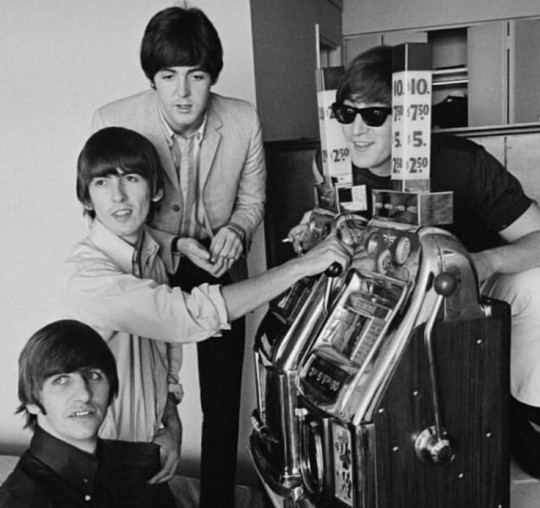
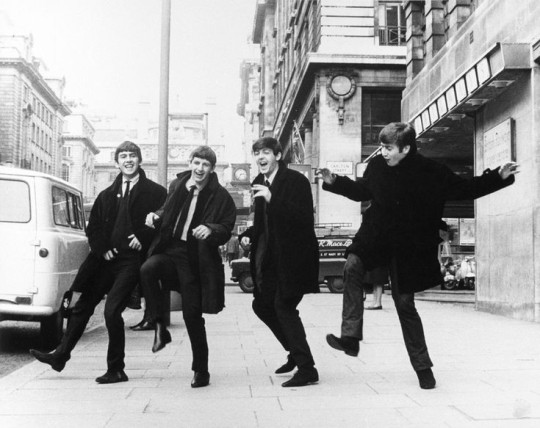
#Asks#John Lennon#Mclennon#John and Paul#Lyrics#Paul Mccartney#The Beatles#would love to hear your thoughts too!#gttr-beatles
125 notes
·
View notes
Text
we NEED to talk about jcs 1975 madrid cast!
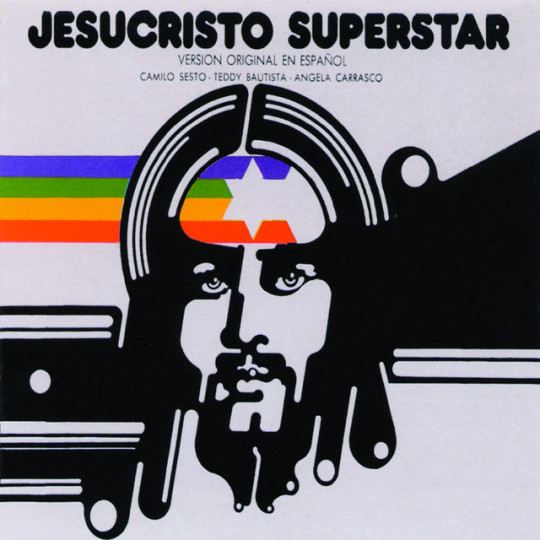
i have come to make camilo sesto justice
(i finally finished this post yay!)
i may be a bit biased, since this was my first jcs.
short story on how i discovered it
my dad used to be an apostle for a bootleg staged playback jcs in peru during the 70s! they used this version.
he had the cd. he also had the mp3 files. i used his computer, so that was how 13 year old me found it.
those were tough times, bc later i started doing catechesis and i kind of got depressed and started questioning my faith lol. judas' character really resonated with me
since this is a recording, i didn't have any footage to reference, so i made up everything in my mind. (this is why it was a bit weird for me to see the english productions, bc they looked nothing like in my head lol)
now, a bit of historical context for spain in the 70's
camilo sesto was a popular spanish singer and actor who went to see the jcs 1971 broadway production in london. he loved it so much that he did everything he could do financially to bring the show to spain.
spain was in a fascist dictatorship at the time
they fought with censorship for years, that's why the lyrics are a bit different (i'll make a post about that too)
they had to remodel the alcalá-palace theater stage entirely
franco (our dictator) died two days after the premiere (about time lol)
the "ultras" (conservatists) didn't like the show so they did lots of crazy stuff (for example, praying for the cast outside the theater or sending BOMB THREATHS?)
anyways, this was the first official translation for jcs!
on the main cast we have
camilo sesto as jesus christ (he wanted the role from the beggining)
teddy bautista as judas iscariot
ángela carrasco as mary magdalene
here's an old pic of them (and some apostles)
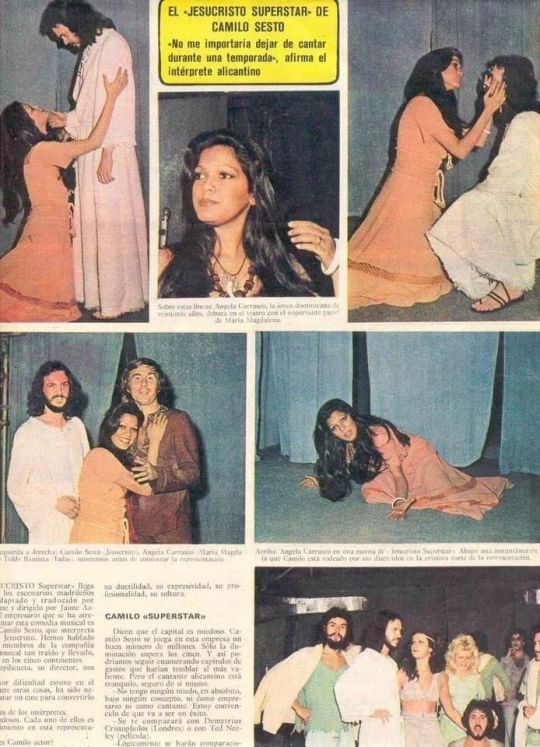
(now that i look at it closely, it kind of looks like a bootleg jcs 1973 lol)
on the recording
it's a stereo recording, so use both headphones or you'll miss out on half of it
musically speaking, it's similar to the og concept album (songs ending on fade-outs and shorter trial before pilate) but it has some interesting choices (teddy, the producer and the voice of judas, took a lot of... artistic liberties)
some things this version has
it adds lots of synth. it's very psychodelic. i understand this can be a turn off for some people
they kinda change the key to many songs. maybe to fit vocal ranges idk
teddy just loves to make up new melodies (please give this man some water)
EPIC GUITAR SOLO in what's the buzz
what's the buzz and strange thing mystifying are separated tracks for some reason
camilo sings so good
cute synth in everything's alright ángela has such an angelic voice she makes such a good mary
the drums and guitars during this jesus must die are so danceable
the BEST simon zealotes i've heard. shit goes HARD. he goes CRAY
i really love this pilate, in my rating he would be the best one
camilo's "¡SALVAOS VOSOTROS!" during the temple is really pathetic lol
damned for all time interlude replaced by synths. the SAX SOLO is also replaced by synth (questionable choice)
cool thing happens during the end of this song that i'll talk about in another post
judas' occasional nervous laughter really adds to his character
also he cries a lot
"you sad pathetic man" part during last supper is... fairly different! (i'm looking at you teddy...)
camilo's gethsemane is epic. he's a baladist singer but MAN he can ROCK
cool harmonica during the arrest
i'll never shut up about our pilate (he nervous laughs too)
herod is so fruity
judas' death really hits different when you were depressed and questioning faith (this version is BRUTAL) also lyrics change (i'll talk about it i swear)
teddy's one of the few judas who sing the i don't know how to love him reprise in the higher scale!! it sounds so painful and anguished
the album continues acceptably
other cool things it has
jesus and judas have this interesting accent difference. since camilo is from valencia, he has this pristine and traditional spanish accent. and teddy is from canarias (also lived in the usa) so his accent is rougher and more, crusty? idk how to explain it but it's neat and stablishes their dynamic a bit. (ángela is from dominican republic! but her accent is barely noticeable)
on the footage aspect, we only have old vhs videos and live audios uploaded on youtube. also some old photos
there is a book about this version. it has some anecdotes (only available in spanish)
now we have a 4 episode mini-series about the odyssey that it was to produce this. it's called "camilo superstar" (i won't be watching it bc it's a bit fan-ficy from what i've seen)
the posts i'll make about this production will be tagged as #jesucristo superstar and #jcs 1975 madrid
you can listen to it on spotify!
or on youtube (playlist made by me)
#jcs#jesucristo superstar#jcs 1975 madrid#jesucristo superestrella#jesus christ superstar#camilo sesto#ángela carrasco#teddy bautista#spain#españa#música en español#musicals#platadesangre#Spotify
31 notes
·
View notes
Text
youtube
1971: The Year That Music Changed Everything — Official Trailer | Apple TV+
13 notes
·
View notes
Photo


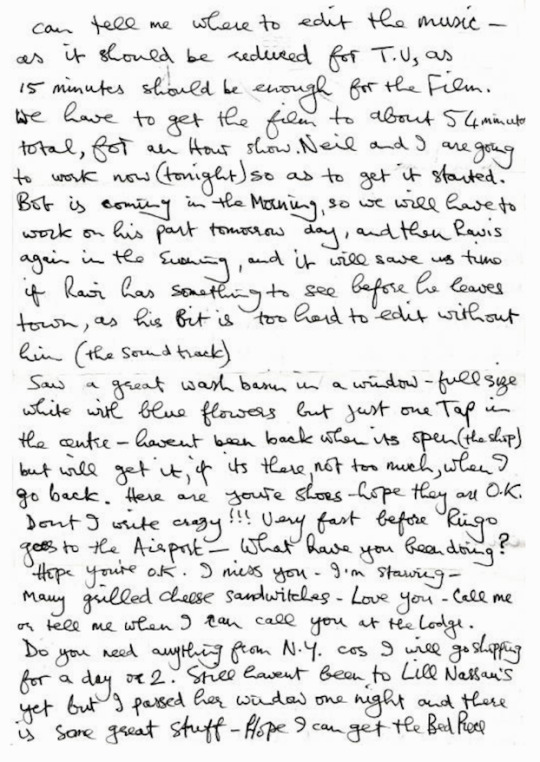
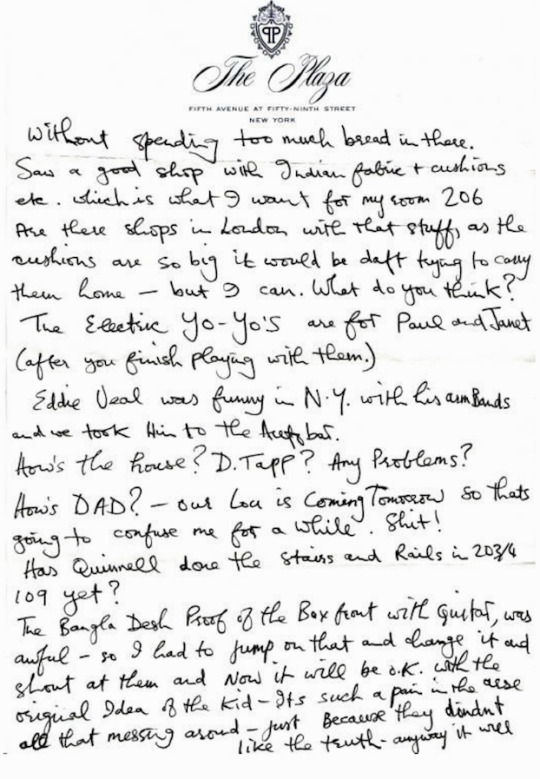
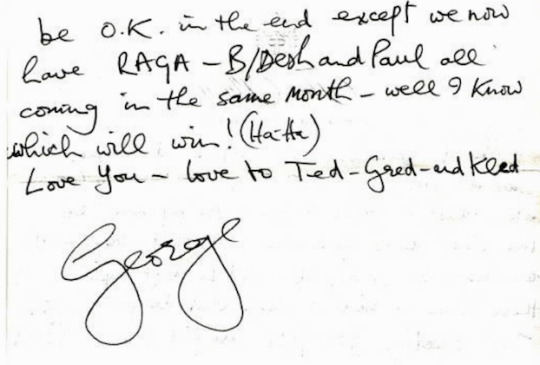
Screenshots rom the e-book edition of Pattie Boyd's Wonderful Tonight: George's letter to Pattie from New York City during the mixing of the Concert for Bangladesh live album. No copyright infringement intended in posting this on this fan site.
This was previously posted some years ago, but I'd removed the post since (copyright!), so this is another try, at the request of an anonymous ask. (An excerpt was posted during 2021's Concert for Bangladesh anniversary special.)
“This is a letter George wrote to me from the Plaza Hotel in New York where he was staying whilst editing the Concert for Bangladesh in 1971. He seems very scattered as his mind races between thoughts, with so much going on and so much to do. […] In the letter he is concerned about the high price of a basin because we weren’t used to spending money. We had no idea about the price of things or even whether we were rich or poor. Money just wasn’t something we ever had to deal with. Everything was always taken care of for us.” - Pattie Boyd, Wonderful Tonight (e-book edition 2011)
The letter (mentioning niece Janet and nephew Paul, father Harold, and others) reads:
“Monday Evening
Dear Pattie,
Hello. Hope you are O.K. I tried to call you when I got here but there was no Greg in the Lodge — Can you call me through Apple at ABKCO or the Plaza —> Room 601 (212) PL9.300 to say hello to Hubby! Its a drag not being able to speak to you. You can call ABKCO and tell them a time, and I’ll call the Lodge.
The ‘France’ was not as good as QE2 more straights in Tuxedo’s and not as many things to do, so I read a lot in the cabin.
Started looking at the film and it should be O.K. for a T.V. show — but a lot of juggling to do — to get what I would like. The Camera men where not too hip on the Rock part — but Ravi’s part seems well covered. Ravi is going to be at the Plaza on Wednesday — so I am going to try to get a Rough cut together by then — so he can tell me where to edit the music — as it should be reduced for T.V., as 15 minutes should be enough for the Film. We have to get the film to about 54 minutes total, for an Hour show. Neil and I are going to work now (tonight) so as to get it started. Bob is coming in the Morning, so we will have to work on his part tomorrow day, and then Ravis again int the Evening, and it will save us time if Ravi has something to see before he leaves town, as his bit is too hard to edit without him (the soundtrack).
Saw a great wash basin in a window — full size white with blue flowers but just one Tap in the centre — haven’t been back when its open (the shop) but will get it, if its there, not too much, when I go back. Here are you’re shoes — hope they are O.K. Don’t I write crazy!!! Very fast before Ringo goes to the Airport — What have you been doing? Hope you’re O.K. I miss you — I’m starving — many grilled cheese sandwiches — Love you — Call me or tell me when I can call you at the Lodge.
Do you need anything from N.Y. cos I will go shopping for a day or 2. Still haven’t been to Lill Nassau’s yet but I passed her window one night and there is some great stuff — Hope I can get the Bed Piece without spending too much bread in there.
Saw a good shop with Indian fabric + cushions etc. which is what I want for my room 206. Are there shops in London with that stuff, as the cushions are so big it would be daft trying to carry them home — but I can. What do you think?
The Electric Yo-Yo’s are for Paul + Janet (after you finish playing with them.)
Eddie Veal was funny in N.Y. with his arm Bands and we took him to the Auto bar.
How’s the house? D. Tapp? Any Problems?
How’s DAD? — our Lou is coming Tomorrow so thats going to confuse me for a while. Shit!
Has Quinnell done the stairs and Rails in 203/4 109 yet?
The Bangla Desh Proof of the Box front with guitar, was awful — so I had to jump on that and change it and shout at them and Now it will be O.K. with the original idea of the kid — Its such a pain in the arse all that messing around — just because they didnt like the truth— anyway it will be O.K. in the end except we now have RAGA — B/Desh and Paul all coming in the same month — well I know which will win! (Ha-Ha)
Love you — love to Ted - Gred - and Kled
George”
#George Harrison#Pattie Boyd#quote#quotes by George#Harrison correspondence#George and Pattie#1971#1970s#Wonderful Tonight#fits queue like a glove
204 notes
·
View notes
Text
Barry Hertz’s article reproduced below:
There is a strong case to be made that Norman Jewison was the most important Canadian filmmaker to never make Canadian films.
A child of Toronto but a creature of Hollywood, Jewison, who died Saturday at the age of 97, built his directorial career outside his beloved home country from almost the very beginning. A stint at the BBC in London turned into a few years at the CBC, which led to gigs inside American network television, which in turn allowed him to wriggle himself inside, and then more or less conquer, the studio system.
Did Jewison consider himself “Canadian” as he made every kind of film under the L.A. sun?
In 24 features produced across five rollicking decades of industry excess, was there some kind of homegrown thread that could connect everything from a fizzy heist flick (1968′s The Thomas Crown Affair) to go-for-broke musicals (1971′s Fiddler on the Roof, 1973′s Jesus Christ Superstar) to a stirring legal drama (1979′s ... And Justice for All) to a screwball rom-com (1987′s Moonstruck)?
Perhaps the answer can be found in Jewison’s intense commitment to social justice – his unshakable belief that filmmaking not only had the power but also the duty to change the way that we see our world, and each other. That is as admirably progressive a Canadian value as anything, and can be felt powering Jewison’s most searing productions, including 1967′s In the Heat of the Night, 1984′s A Soldier’s Story, 1999′s The Hurricane, and even, in its own way, his wild 1966 farce The Russians Are Coming, The Russians Are Coming!
But despite setting one film in Montreal (1985′s Jane Fonda convent drama Agnes of God) and half of another in Toronto (The Hurricane), Jewison never made the Great Canadian Film. Not that he didn’t want to.
“I wish I could have made a statement about Canada vs. the U.S., and Canada vs. the rest of the world. I would have loved to do it. But I never found a story that I believed I could make into an exciting motion picture,” Jewison told The Globe and Mail in 2016. “If you set out to make a big statement about Canada, you’re going to fail!”
While Canadian filmmakers – both Jewison’s contemporaries and those who followed him decades afterward – might disagree with such a statement, one thing becomes clear when considering the director’s improbable, eclectic and essential canon: Norman Jewison never, ever wanted to fail. While he may have stumbled here and there, disaster was flirted with more than tolerated. If there is one through-line to Jewison’s films, it is the fierce commitment to the belief that a good story told in a highly entertaining fashion – slick, precise, sincere – is the very best way to win hearts and minds. Give it your all, and audiences will respond in kind.
Sometimes this worked out better in theory than practice – few contemporary moviegoers will find much to revisit in 1982′s Best Friends, 1994′s Only You or 1996′s Bogus – but when Jewison was able to line up his passions and resources just so, it resulted in a kind of beautiful cinematic alchemy. He wrung tremendous performances from Hollywood legends (Steve McQueen, Sidney Poitier, Al Pacino), uncovered new layers in superstars who audiences thought they already knew inside out (Cher), minted new stars (Nicolas Cage, Denzel Washington), and made it all seem so deceptively easy.
Even Jewison’s missteps contained such endlessly fascinating elements – the distressingly prescient corporate satire of Rollerball, the labour politics of F.I.S.T., the lingering political ambiguity of what would be his final film, The Statement – that they all demand attention and reassessment. Jewison was a relentlessly committed craftsman who worked in the service of the audience. He was Canada’s ultimate showman, even if he didn’t believe he could ever show Canada to the rest of the world.
Not to say that Jewison ever forgot where he came from, either.
As founder of the Canadian Film Centre, a charitable organization that has helped train 1,900-plus filmmakers, writers and performers since its inception in 1988, Jewison played an integral role in building up this country’s screens sector. It was a community that Jewison himself never relied upon to build his own career – but only because it was a community that simply did not exist at the time.
And what is more Canadian than helping others, even if you were never given the same opportunity yourself?
#rip norman jewison#norman jewison#barry hertz#the globe and mail#canadian directors#canadian film centre#canadian film#canadian cinema
5 notes
·
View notes
Text
Listen to me. Do whatever you have to do (and that includes a free trial) and devour the 2021 doc series "1971: THE YEAR THAT MUSIC CHANGED EVERYTHING," now streaming on Apple-TV. Beyond revelatory. Unbelievable footage and VO bites. Crazy crazy crazy good....
2 notes
·
View notes
Text
Pure Imagination
This week’s ear worm.
An almost 30-year old movie at the time I first watched it, the 1971 “Willy Wonka & The Chocolate Factory”’s magic was so inspiring.
Upon listening to the original song “Pure Imagination” recently, I realized why the film was so magical.
The music.
Sometimes it’s just a phrase or a beat, but cover songs don’t do the aforementioned justice.
Gene Wilder, Leslie Bricusse and Anthony Newley made something unrepeatable.
Listening to it with fresh, adult ears, I know why the kid version was so enamored - the phrasing, the deliberation, yet leaving room for all the in between to seep through but also holding everything together in a warm embrace…
My baby actually started smiling when it began playing and I sang and danced along.
“If you want to view paradise, simply look around and view it. Anything you want to, do it. Want to change the world? There’s nothing to it.”
3 notes
·
View notes
Text
Nickel Bin #5:
Steeleye Span's Captain Coulston
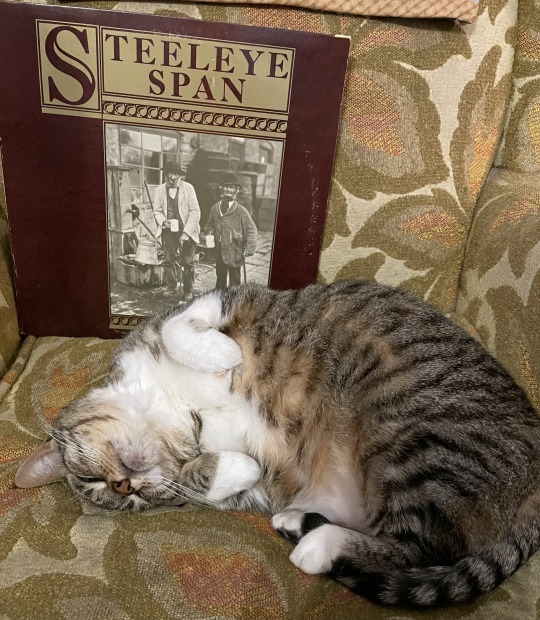
You'd be hard pressed to find a record more dedicated to not selling a single copy than Steeleye Span's Ten Man Mop or Mr Reservoir Butler Rides Again.
Yes, that's the record's title, and it features a period at the end of it although I'm pretty sure it's not a complete sentence. The record sports out of focus black and white photos of the band on the rear and the two ancients seen above behind my cat on its front; when originally issued, the gatefold opened to an entire booklet within, filled with incomprehensible gibberish; because of this extensive packaging, which the band paid for and which appealed to them alone and no one else, every copy of the record cost more to produce than it actually sold for; therefore every copy sold actually cost the band money.
The music within was entirely Irish and English traditional airs, each performed like it was 1671, not 1971. More gibberish appeared beneath each track listing, stuff like "2/1 Creeping Jane, 9/4 Skrewball, 8/1 Miss Portly, 10/1 Bar..."
The band's bass player/founder, Ashley Hutchings, was so disappointed with the final product that he quit the band the moment the recording was done. He wasn't angry that they were losing money making music that no one wanted hear; he was angry that they sounded too Irish.
Given all these factors, I find it baffling that the record somehow failed to compete with Led Zeppelin 4, Sticky Fingers, Meddle, Blue and Imagine. Hell, there are probably 40,000 copies of that year's Stephen Stills 2 out there for every existent copy of Ten Man Mop. And Stephen Stills... you know the rest of that sentence. But it's 53 years later; let's rewrite history and sing the record's praises.
Yeah, well, never mind. There are plenty of great Steeleye records to shout about, and this is not one of them. Sure, it's good - their records are all good - but let's focus in on one weird, wonderful and forgotten track, Captain Coulston.
Unlike many of the songs on the record this one is fairly modern; it was written around 1800, all about laterday Irish pirates. Aren't you excited to listen to this? I sure am.
youtube
Everything is nice at the opening, yes? Maddy Prior's strident, twisting vocals glow over Martin Carthy's complex and shimmering electric guitar and a brooding bass line.
I doubt the first two minutes are changing your life, however; you're probably wishing I was writing about Stairway to Heaven. But come on, stick with me! You heard Zeppelin 4 in seventh grade; and you've never listened to this.
At the song's two minute mark things get intense. The pirates attack, the violin swirls in and something starts pounding; maybe it's Hutching's bass or a keyboard charged with distortion; maybe it's an angry pagan god glowering about, demanding tribute. The band is suddenly mounting rare and new heights, ready to kick ass John Snow style all over Westeros.
Every time I listen to Captain Coulston I'm too into the music to really follow the plot; blood in streams does flow until, somehow, the pirates are defeated. Then the band celebrates by gliding into a deck stomping and fairly murderous reel.
Surrender to this song; surrender to the Nickel Bin.
5 notes
·
View notes
Text
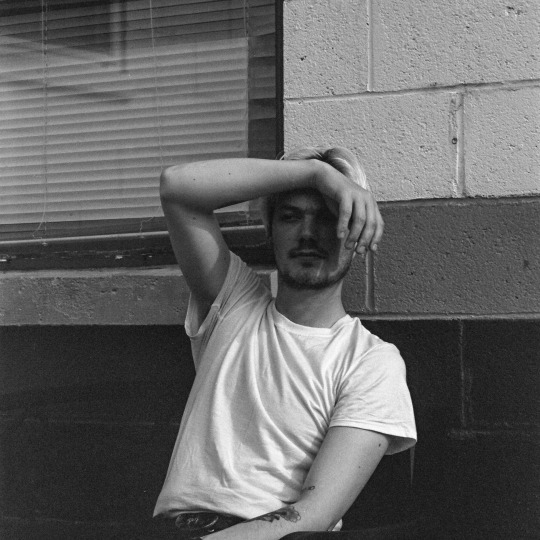
Interview with Sawyer G. (December 2023)
Back in September we shared Sawyer Gebauer's first release as Sawyer G., It'll Be Gone For A Little While, which is also his first foray into instrumental music. Here we get to dive deeper into his evolving practice.
1. What are some recent inspirations?
Lately, there's been a lot of experimental, ambient, techno, house, breakbeat, and glitch. The Berlin-based projects Nthng and S.W. stand out for their grasp of techno/house historical roots while weaving their uniqueness into the fabric of the genre. Nosaj Thing's album Continua (2022) has been my companion for the past month.
In literature, I recently completed the knighted historian Keith Thomas's work, Religion and the Decline of Magic (1971). This 800-page tome explores 16th/17th century England, offering a detailed account of the ebb and flow, as well as the reciprocal relationship between Christianity and the occult, much of which happened during the Interregnum period. My next instrumental album will play off of these themes, each song titled inspired by superstitious methods used during these periods to keep evil spirits away.
Visually, Paleochristian and Middle Age art and architecture have been fun to dive into further this year. The implementation of abstract form in exchange for naturalistic representation to pursue the divine is fascinating. Not to mention the symbolism in the storytelling that creates a mysterious aura. I’ve noticed there's been increased references to, and acceptance of, this period of art in contemporary culture. I wonder if it has anything to do with our own self-abstraction in search of a new space, a virtual space. A quest for transcendence to reach a higher plane through technology and our drive to escape the earthly realm for a brighter, more powerful, and convenient world.
2. As someone who has worked so much in the realm of song-based music (lyrics, melodies, etc.), do you feel that instrumental music allows you to express things that you can’t in the song format?
Yes. It was freeing to break from word and structure. I made my most impactful and genuine work because of this freedom. My whole creative life led up to those moments making this album, and I found a piece of myself that was present, yet dormant. Now, I feel the experimental and the song-based format have been merging in really exciting and interesting ways.
3. Do you prefer to refine a composition over a period of time or capture something quickly and move on?
It’s circumstantial. If there's flow between me and the song, and the space is right, I can work on a song for two weeks straight, 40 hours a week. However, if I step away from it too long, I find it difficult to return to the same creative realm that space once provided. At that point, I chalk it up as another step closer to the song that needs to be created later. Not everything I put time into needs to be a released product, or even a finished one. To be discerning and letting things go can make the future work better.
4. How do you like to get perspective on your work?
I have those whom I trust that will give constructive words to make the work better. I’ve been releasing music since I was 18, almost 15 years. Something I’ve realized is that as you get older and more invested in your passion, the need for praise to build confidence is no longer sought after. Instead, you want to know how the work can get better, and how much deeper you can go. Trusted external sources can help get you where you want to be, rather than getting lost in the false direction of expectation. If you're doing it right, you are making it for yourself and the ones around you.
5. When did you first start releasing music? And how has your relationship to the releasing process changed since then?
I was in high school when I released my first album O Lost!, inspired by Thomas Wolfe’s novel Look Homeward, Angel. When I graduated, I moved to Stockholm and signed to a now dissolved label run by an ex-pat from Canada. This was 2010, before Spotify was the gate keeper of music consumption that resulted in listeners becoming further passive in how they discover music, relying on playlist automation. Indie fans still found their music through blogs and Soundcloud. That’s not so much the case anymore. Through the convenience of technology that brings with it affordability, a lot of our art consumption is severed from connection or relationship. Like fast fashion, fast design, fast food, there is fast art. Easy come, easy go. Little is left with a lasting impact or impression. That seems to me like one of the biggest changes releasing music in the past 10 years or so.
6. How much of a role does improvisation play in the tracks that make up It’ll Be Gone For A Little While?
There's a good balance between composition and improvisation in It’ll Be Gone for A Little While. I try not to force things. I rarely have an idea of what I want to do with a song when beginning. Instead, I listen and feel where the song wants to go. This flow has worked well for me. I find that if I have too much of an intention or idea of what I want to do, there is friction, and it comes out feeling stiff and soulless. I've found that those initially intended ideas come out naturally when they need to.
7. Are there any particular pieces of visual art that inspired the tracks on the album?
Love that question. At the time, Lee Ufan, Pat Steir, Barnett Newman, Isamu Noguchi, Joan Miro. You can hear this in the album - Moments of minimalism and maximalism. At times it can be disturbing, peaceful, or contradictory, like tranquil chaos.
8. You’ve mentioned fragmentation being an important aspect of this new work. How does it factor in for you?
To come full circle from the second question. I was in the realm of creating in structured form most of my life. It's important to have a firm grasp on structure and tradition to break it down in interesting, provocative, and productive ways while acknowledging the importance of the past. Studying jazz, which then took me into realms of experimentalism and ambient, was imperative toward intentionally breaking down these forms.
9. Do you feel like working on this instrumental project has influenced your approach to Catch Prichard and your song-oriented music?
Absolutely. I have incorporated elements from both fields. Sampling, granular synthesis, ambient and experimental sonic space. It has come to a degree that, when beginning a piece, I don’t know whether it will be a Catch Prichard track or a Sawyer G. song. The expression to be able to weave in and out, but also fuse together these themes, has been incredibly enlightening. I'm excited to see where it goes.
10. Words of wisdom you like to recall in times of need?
Creatively, do you. Trust your intuition. Let your work guide you where it needs to go, it only needs your help to bring it to its full potential.
2 notes
·
View notes
Text
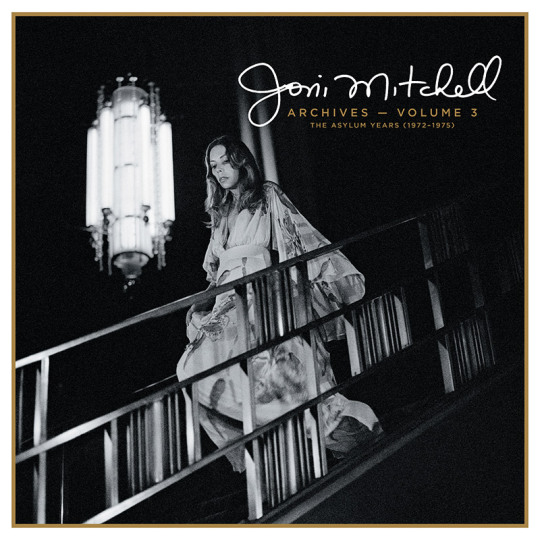
Announcing "Archives—Volume 3: The Asylum Years (1972-1975)
Come 1972, Joni Mitchell’s singular songwriting talent and poetic gifts were undeniable. Fresh off the back-to-back Platinum-certified releases of 1970’s Ladies of the Canyon and 1971’s Blue — totemic albums whose artfulness and ubiquity would influence generations of songwriters — Mitchell had grown wary of mounting media scrutiny. Everything from her style choices to romantic partners became the subject of far more gossip column inches than were ever dedicated to the lifestyle minutiae of her male counterparts.
In response, she had pulled back, announcing an early retirement from the stage in 1970 and moving to the quiet expanses of British Columbia’s Sunshine Coast. It was a fruitful change of scenery. Inspired by her proximity to nature and refreshed by the peaceful seclusion, she began constructing the songs that would become For The Roses. This respite thrust Mitchell into a remarkably fertile creative period, yielding a run of albums — 1972’s For The Roses, 1974’s Court And Spark, and 1975’s The Hissing Of Summer Lawns — that would simultaneously expand and refine the scope of her music. Her adventurous, intricate arrangements and growing formidability as a bandleader injected these songs with a clarity of purpose, a potent muscularity, and a sense of possibility — it is among the most exciting eras of a near peerless career.
This era comes into even greater focus on Joni Mitchell Archives, Vol. 3: The Asylum Years (1972-1975), out October 6, 2023 on Rhino Records. It’s the latest entry in Rhino’s ongoing, GRAMMY-winning series exploring the vast untapped archives of rare Joni Mitchell recordings — a project guided intimately by Mitchell’s own vision and personal touch. Joni Mitchell Archives, Vol. 3: The Asylum Years (1972-1975) will be available both in a 5CD / digital version and a 4LP cut-down version, both with an accompanying book featuring photos and a conversation about this period between Joni Mitchell and longtime friend Cameron Crowe.
#Joni Mitchell#Archives Series#Archives Volume 3#Archives Volume 3: The Asylum Years (1972 1975)#2023#2020s
6 notes
·
View notes
Text
I was kindly tagged by @giaffa, thank you so much!
Last song: Babe I’m gonna Leave you-Led Zeppelin.
Last movie: haven’t been watching a lot of movies but I’m planning on rewatching Snatch(2000).
Currently watching: The Umbrella Academy and 1971: The Year That Music Changed Everything.
Currently reading: Face It by Debbie Harry.
Currently craving: cold weather.
Last thing I searched: Theta Bera.
✨Tagging: @spikeys, @mikedirnts-sideburns, @martyr-eater, @sodaandtoast. If you do this i hope you have fun! But no pressure.✨
#all of a sudden remembered Led Zeppelin exists#so been listening to them a lot#its also been unbelievably hot out and i want winter back!#tag games
5 notes
·
View notes
Text
"Queen of Tejano", Selena Quintanilla
I have mentioned this person in my blog once but let’s dig deeper into this famous singer, Selena!
Selena Quintanilla was born on April 16, 1971, in Lake Jackson, Texas. She was the youngest child of three. When Selena was younger, her father, Abraham Quintanilla, encouraged Selena and her older siblings to be a band together, which later on was named Selena y Los Dinos. During this time, the Quintanilla family filed for bankruptcy due to their family restaurant closing down. Selena y Los Dinos was a way to help the family make money. This is when her father recognized Selena's talent for singing.
A little background on the parents, Selena's father is of Mexican descent while her mother is of Native-American descent. Both of her parents spoke Spanish, but they only spoke English in the house. Due to this, Selena was not fluent in Spanish like her older siblings. It was when they started the band, her father encouraged them to learn Spanish, that way they can sing their songs in Spanish. Selena was basically learning to speak Spanish but she wasn't really doing any actual learning from it. She would do interviews in English and it wasn't until the 90s that Selena started to take learning Spanish seriously. Selena's father wanted them to learn Spanish to sing the song in their band but to also learn because he wanted them to stay connected with their Mexican culture.
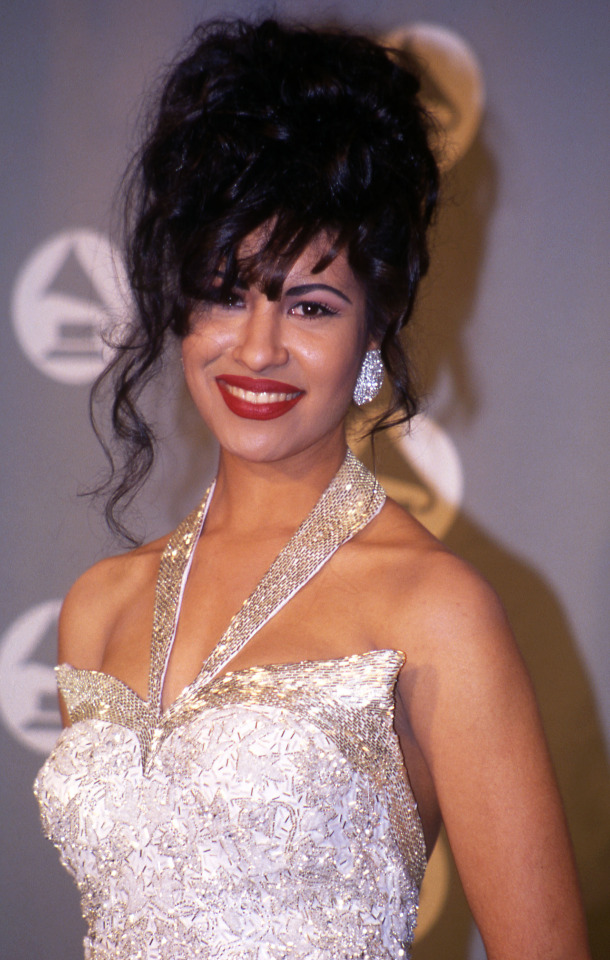
Selena grew apart from the band and started her solo career later on in life, and that is when everything changed for her and her family. She was considered the “Queen of Tejano” music. She was the first female to place her 5th album, Dreaming of You, on the Billboard 200 chart and she won Female Vocalist of the year in 1986. In 1994, Selena opened up her boutique and salon, and it became very popular for its exotic styles of clothing that she would wear when she performed. She became such an inspiration to many Hispanics and Spanish people around the world, especially at a young age. She was especially inspirational to the Hispanics who aren't fluent as well, like me, because even though Selena was a celebrity, she had the same struggle growing up as many third-generation kids.
2 notes
·
View notes
Text
tagged by @baldwinpdf, thank you lots!!!
favorite color: blue and pink
last song: peggy sue by john lennon
last movie: monkey business. it was a wild ride and i couldn't finish this movie for like 3 days or so
last show: it's been so long since i watched a show i don't really like the format.... the last one probably was 1971 the year that music changed everything i think
sweet/spicy/savory: spicy
currently reading: nothing.... i'm a terrible reader and i'm forever ashamed of it but it's too hard to find books that i'm interested in and if i'm not i can't finish them. if you can recommend a book that centers queer characters and isn't young adult go ahead!!! (it also depends on if i'm able to find it anywhere to read though)
current obsession: the bottles
currently working on: drawing john as elvis from that event, then i'm gonna draw elvis himself to complete the sketchbook spread and i'm also trying to write a fucking fanfic. been working on it for more than half a year now which is embarrassing!
3 notes
·
View notes
Text
I was tagged by @terryfphanatics to compile a list of 9 movies that I loved, and at first I couldn’t think of one movie, then I had too many and had to edit. So this is just a loosely based list on 9 movies that are definitely at the top of my Movies I love list.

Pee-Wee’s Big Adventure! Hands down one of my favorites, while I’ve been decorating my house I’m trying to take inspiration from Graceland and Pee-Wee in every room. This movie is silly and ridiculous. A perfect mashup of camp, Burton, and Danny Elfman.

I first watched Harold and Maude when I was a junior in High School. Someone else in our drama class had watched it and talked about how funny it was, and afterward I asked my Drama teacher what it was about and the description he gave me was so WILDLY DIFFERENT than what the movie was that when I watched it the first time I was so disappointed. However it’s since grown on me and continues to be one of my favorites to this day. I watch this movie when I’m happy. I watch this movie when I’m sad and grieving. I’ve stood in line on record store day to purchase the soundtrack on vinyl. I try to model my life like Maude even when I find inspiration in Harold. And Vivian Perkins continues to be fashion inspo every day of the week.

Hey so don’t fucking judge me okay. Yes yes, I love Gene Wilder and I love Willy Wonka and the Chocolate Factory but @terryfphanatics already did that and besides those two movies are bad bitches and we don’t pit bad bitches against each other. I don’t know why so many people HATE this movie, if anything it’s more accurate to the book than the 1971 version (Though lacking in Oscar Wilde quotes) But anyway. I was so excited, this movie came out the height of my Tim Burton and Johnny Depp phase and I went to the midnight showing. It possessed me completely and then I saw it FOUR MORE times in theaters. My friends bought me purple leather silk lined gloves. I bought the velvet jacket, I cut my hair. I wore vests and pinstripe pants to school. I made golden tickets and folded them into king sized candy bars for my 16th birthday and handed them out at school with no explanation. I had never been so popular. Everything at my party was chocolate. Chocolate cups and everything! All my friends gave me Charlie and the Chocolate factory merch. I was living it. I don’t have any complaints about this movie. It’s delightful. I love it all. Don’t come for this movie or I’ll come for you.

Big Trouble in Little China was a movie I was exposed to very young and I only continue to love it more as I get older. I’m in love with Kurt Russell. I quote it all the time. It’s so 80′s and action packed without going over the top with fight scenes like some other john carpenter flicks. I like to use this movie to gauge whether or not I will get along with someone.
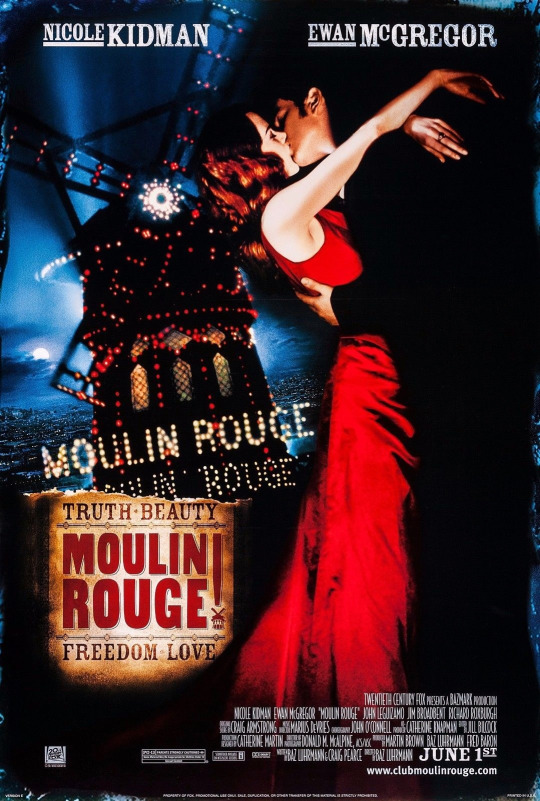
Truth Beauty Freedom Love. Is there anything else to say? I remember when this movie came out my parents wouldn’t let me see it but when I finally got to see it years later it was like I discovered drugs for the first time. I changed my whole room to be french and moulin rouge themed. My friends and I would sing the songs to each other in the stair wells. The music and the costumes are *chef kiss*
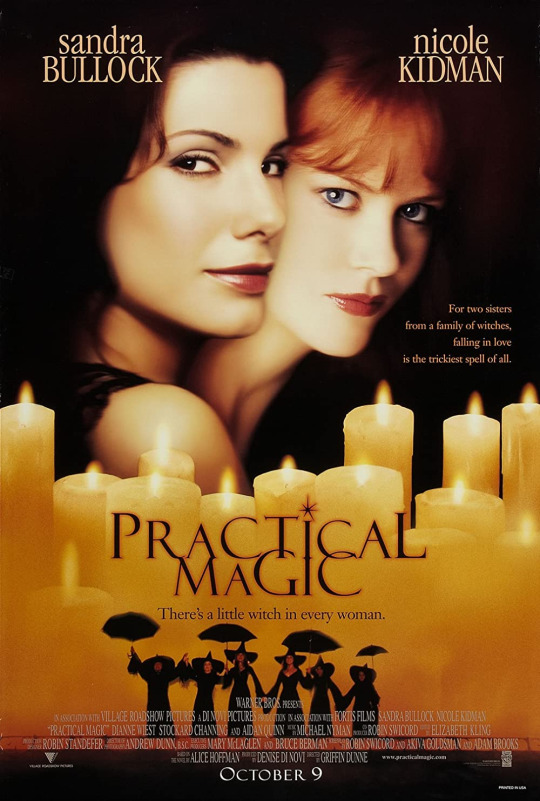
When I was little I wanted to change my name to Sally because of this movie. I expect the man I marry to be like Gary Hallet even if I keep chasing after Jimmy Angeloves. And if I’m lucky I’ll end up like Aunt Francis, she’s really all I ever wanted to be in this world. If you haven’t seen it, take a windy summer night and watch it with the windows open.
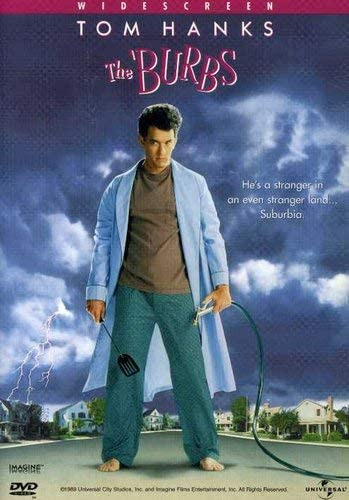
Less and less people seem to have seen this gem of a movie. A perfect horror movie set in a neutral setting. Bored suburban neighbors growing increasingly wary of their new neighbors? It’s amazing. Tom Hanks, Bruce Dern, Carrie Fisher, and Corey Feldman? Yes please. Again, if you haven’t seen it. Perfect Summer night flick.
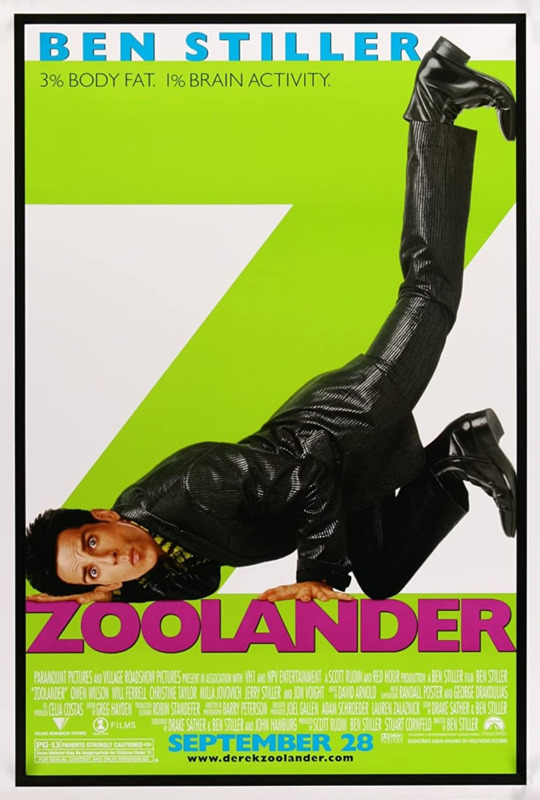
This Movie is great on so many levels. I quote it non stop. It had such a big impact on me from when I first saw it at a sleep over. As stupid as Austin Powers but with far more charm. The best thing about this movie is seeing how many cameos there really are. Talk about star studded as well! Ben Stiller, Jerry Stiller, Owen Wilson, Will Ferrell, Milla Jovovich, Christine Taylor, and countless cameos including David Bowie in maybe one of the best movie scenes of all time.

Marissa. Tomei.
I’m gonna go ahead and tag @beardedbarista @hatglasses @impure-lace @pmastamonkmonk @everyonespinkontheinside but no pressure
6 notes
·
View notes